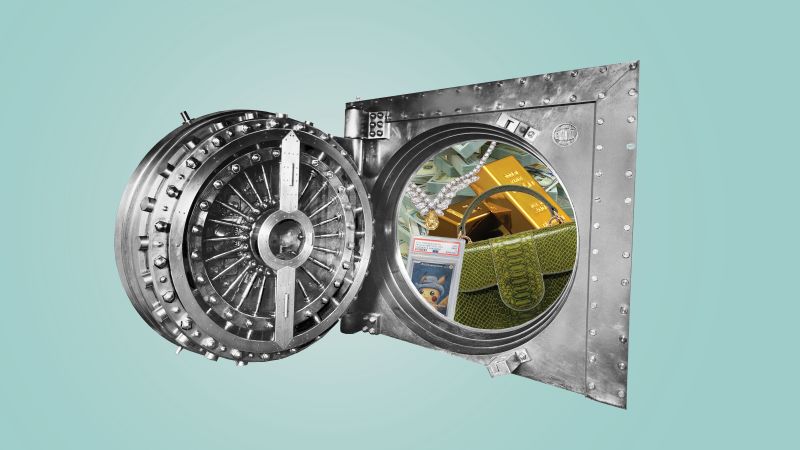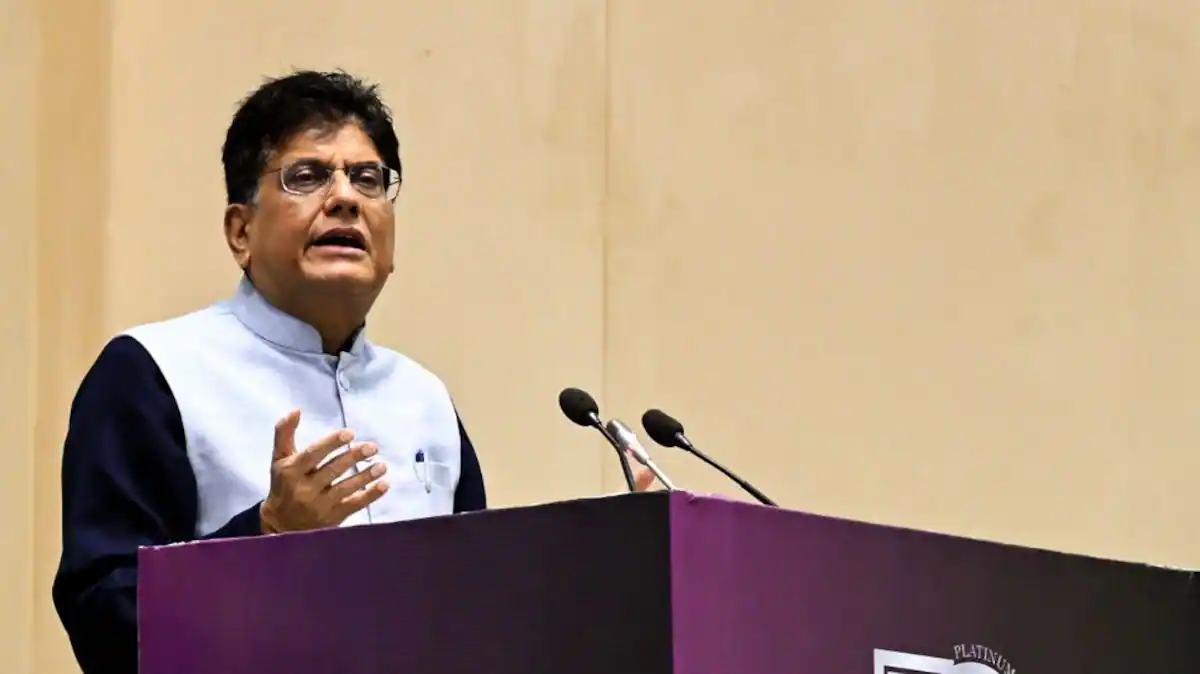
From the steel-lined walls to a multi-tiered biometric security system, the complex measures that go into protecting one building in London’s West End district feel on par with the kind that feature in Spike Lee’s crime thriller movie “Inside Man,” or the comedy heist film “Now You See Me,” starring Jesse Eisenberg and Mark Ruffalo. Except, there’ll be no successful break-ins here. Located in a historical former mansion next to the high-end Dorchester Hotel, this is one of the most secure private vaults in Europe, if not the world.
The entrance to the building is always locked, and at least one officer guards the stairway down to the safes, where advanced securities are in place, including a fingerprint and iris scanner and an electronic key card reader. All three identifiers must be valid for someone to pass through what Sean Hoey, managing director of the five-year-old facility, run by IBV International Vaults, calls “a man trap area,” where visitors are asked to wait between two gates and bulletproof glass that can withstand fire from an AK-47.
On the premises there are also 24-hour CCTV cameras with four separate monitoring stations (one on site, three external), intruder alarms and flood detectors installed in the floors, ceilings and walls. “If there is any movement here, a few of us know about it,” said Hoey while giving CNN a tour in August. (Hoey was poached about eight years ago from Harrods, where he was in charge of the British luxury department store’s safety deposit boxes.) “Nothing untoward can happen without anyone being informed. Even if there is just a fox outside at night, we know about it,” he said.
The complex locking mechanisms and security systems may sound extreme, but it’s imperative for safeguarding the valuables inside, which Hoey estimates “is in the region of £40 million to £60 million” (about $54 million to $81 million).
Prized possessions
When one thinks of a safe, one might envision its contents to be stacks of cash or gold. There’s plenty of those inside IBV’s vaults around the world, as well as obvious high-value items such as artworks and handbags from the likes of Hermès and Chanel, according to Hoey. A high-end fragrance company told CNN that they use the facilities to store rare scents they have worked on, as well as precious items that have been gifted to them by royalty.
Some other valuables are more unexpected. The ones that have surprised Hoey the most have little monetary value but are irreplaceable, such as family heirlooms, photographs, and things of niche interest, like limited-edition Pokémon cards and collectible toys. “I knew of someone storing toy soldiers, while someone else stored the first edition of a book that they wanted to keep in mint condition,” he recalled.
Hoey continued: “You’ve also got people hiding things from others, like a husband hiding something from his wife, or vice versa. Some people put things in there that they don’t want others to know about until they pass away,” he said, such as the deeds to properties, wills, and other legal documents.
Hoey’s knowledge of what goes inside some of the vaults comes from the casual conversations he has with clients. He was tight-lipped about sharing specific details, noting that “the sort of people who come here really varies. We have celebrities, sports stars, foreign royalties, and millionaires and billionaires.” They could also be regular individuals with an ordinary job, he said. He added that the UK’s high international foot traffic means that many clients come from all over, from countries such as China, Dubai, India and the United States.
The company’s smaller sized safes, which begin at $1,350 per year and are the size of a semi-flattened shoebox, are all currently occupied. Only a few medium to large storages, big enough to fit a hefty suitcase and costing as much as $20,300 annually, are available.
The company does not mandate that clients disclose the contents of their safety deposit boxes nor the monetary value of the items they store, but to become a member they must undergo an extensive vetting process and sign the terms and conditions, which prohibits storage of contraband like drugs, laundered money or goods that are widely banned in trade, such as elephant tusks, said Hoey.
However, that still leaves much up to trust, prompting some critics to question whether companies like IBV International Vaults are inadvertently providing a haven for criminals, as they do not face the same level of scrutiny and regulatory oversight as traditional banks.
Notably, US Private Vaults, which offers anonymous storage for valuables, was shut down in 2021 when the FBI raided its Beverly Hills location and seized over $86 million in cash and other assets, including drugs. The company later pleaded guilty to conspiracy and money laundering — though in 2024, things took a turn when a US federal appeals court ruled that the raid — which led to the opening and cataloguing of 1,400 safe-deposit boxes, despite there not being individual criminal warrants for each — violated the constitutional rights of their owners.
Hoey asserts that his clients are above board, and in some cases, what they lock away is rather surprising. “People are storing things that mean something to them,” even if some of those belongings are “strange,” he said.
Old-fashioned security
Some people may question if vaults are a dated concept from yesteryear, one that might go the way of landlines or cassette players. As technology improves, cloud storage and other digital platforms have made it easier to store electronic records of wills, insurance policies and other critical documents.
Meanwhile, private vaults are increasingly becoming obsolete. The largest bank in the US, JP Morgan Chase, is among those that no longer allow new customers to rent safety deposit boxes (though continue to maintain them for existing clients) having deemed them too expensive to run. Some others have stopped offering the service altogether: one estimate in The Wall Street Journal is there are about 20% fewer safety deposit boxes than the 40 million that existed just six years ago.
However, some experts believe the need for private vaults is greater than before. Rob Burgeman, the director and wealth manager at RBC Brewin Dolphin, an investment management firm, points to the unprecedented surge in the price of gold and increased shipments to cities like New York amid fears that new tariff rules could be imposed by US President Donald Trump. “For most clients, owning physical gold is extremely problematic — at least for those not in possession of a vault,” Burgeman told CNN.
Hoey noted that vaults offer a reliable place to store assets amid inflationary and geopolitical risks. “There are a lot of people who don’t trust their own governments,” he said. “For example, you could be from Russia where Putin is your president, and you may not feel confident that you can prevent your things from being accessed.” Hoey described the UK as among the countries that is “quite stable,” in part because of strict gun regulations that prevent widespread ownership. “Yes, there is crime in London, but we haven’t got firearms. People aren’t going around with guns like in some other places.”
Rising demand for safe and private places to store personal goods in South Africa is what prompted local entrepreneur Ashok Sewnarain to open the first IBV facility, in 2004, in Durban. IBV International Vaults, which has over 40,000 members worldwide, has since expanded its services across the country, with outposts in Cape Town and Johannesburg, as well as in the United Arab Emirates and Switzerland — though the latter’s facility is currently rented out to one sole private client, said Hoey. “We’ve got no availability there.”
The length that a client stores their items is on average three to four years, according to Hoey, noting that a majority tend to close their vault when relocating. He’s keen to emphasize that when reassigning their safes, the company will install an entirely new lock.
And unlike some banks and companies, IBV does not keep a spare key for emergencies. Only one key is created per customer, said Hoey. “If a client loses it, we would need to get a specialist locksmith in to drill the lock. It’s impossible for us, or anyone else, to access a safe, apart from the client themselves.”



